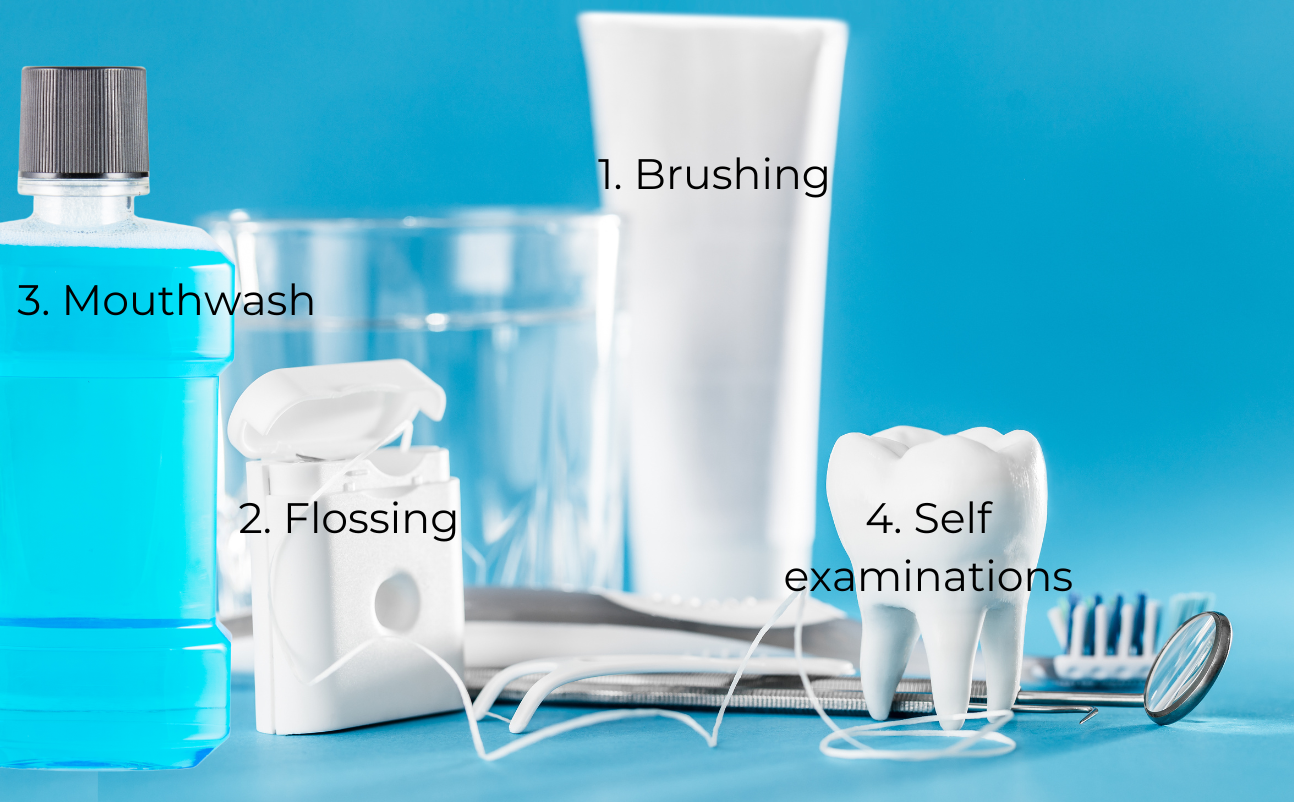When taking care of your oral health as an adult, regular dental care and proper oral hygiene can help prevent many dental issues. Your oral health is linked to systemic conditions like cardiovascular disease, diabetes, and respiratory infections, too.
From bad breath to cavities and gum disease, follow these guides on how to maintain your oral health to enjoy a healthy, functional and attractive smile throughout your adult life.
How do I maintain my daily oral hygiene?

1. Brushing
Use soft-bristled toothbrushes and fluoride toothpaste to brush your teeth at least twice a day for at least two minutes (preferably after meals) with soft-bristled toothbrushes and fluoride toothpaste. Try to cover all surfaces of your teeth and tongue.
2. Flossing
Floss at least once a day, using a gentle back-and-forth motion to avoid damaging gums. Make sure that you clean between all of your teeth and even under the gumline.
3. Mouthwash
Use an antiseptic or fluoride mouthwash to reduce plaque, prevent gingivitis, and strengthen enamel.
4. Self-examinations at home
It helps to regularly check your mouth for oral cancer signs, such as sores, lumps, or changes in tissue colour. You should promptly report any concerns to your dentist if needed.
5. Improving your oral health through diet and lifestyle changes
Balanced diet — Limit your intake of sugary and acidic foods and drinks that can contribute to tooth decay and erosion. Instead, you could try out diets of fruits, vegetables, whole grains and lean proteins.
Hydration — Drinking plenty of water helps to wash away food particles and bacteria.
Avoiding tobacco — Exercise care when smoking and chewing tobacco, as both increase the risk of oral cancer, gum disease, and tooth loss.
How often should I visit my dentist?

Ideally, you should visit your dentist at least twice a year for check-ups and cleanings. Scheduling and getting professional oral cleaning done during this time helps to remove tartar and plaque buildup that regular brushing and flossing cannot cover. These regular examinations can help to detect early signs of serious issues like cavities, gum disease and oral cancer.
What are some common dental problems in adults?
1. Tooth cavities
Depending on the severity, your cavities can be treated with fillings, crowns, or root canals.
2. Gum disease (gingivitis & periodontitis)
If you have mild gum disease (gingivitis), it can still be reversed with professional cleaning and proper hygiene. More severe forms (periodontitis) may need deeper cleaning, medication or surgery.
3. Tooth sensitivity
Your tooth sensitivity can be helped by using desensitising toothpaste and avoiding extremely hot or cold foods and drinks, but you should still consult your dentist in any case of persistent sensitivity.
4. Dry mouth
Dry mouth is relatively common in older adults or as a side effect of certain medications. You should stay hydrated, chew sugar-free gum, and use saliva substitutes if necessary.
5. Orthodontic care
Even as an adult, orthodontic treatments like braces or clear aligners can correct misalignment and improve oral health.
6. Dental prosthetics
Dentures, bridges, and implants can replace missing teeth and restore function and aesthetics.
For more information, contact us:
Thomson Dental Centre
Call: 6255 0770
WhatsApp: 8716 9594
Book an Appointment